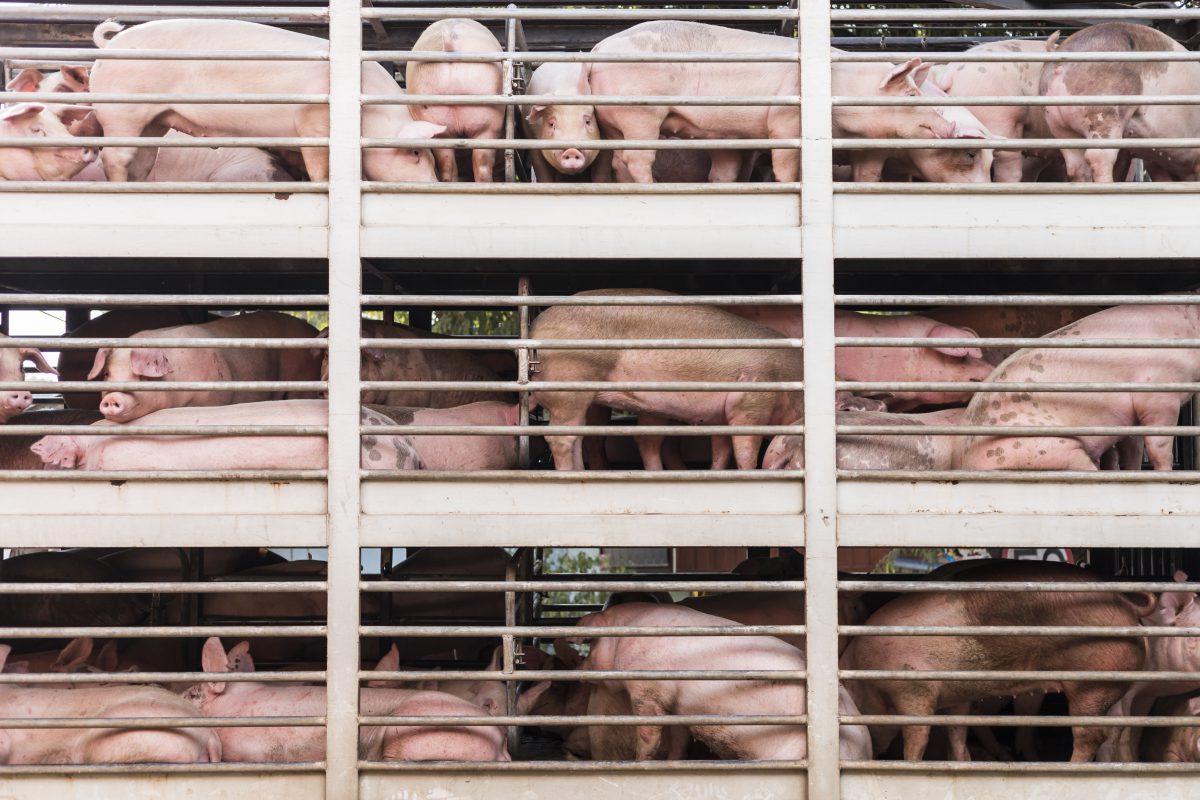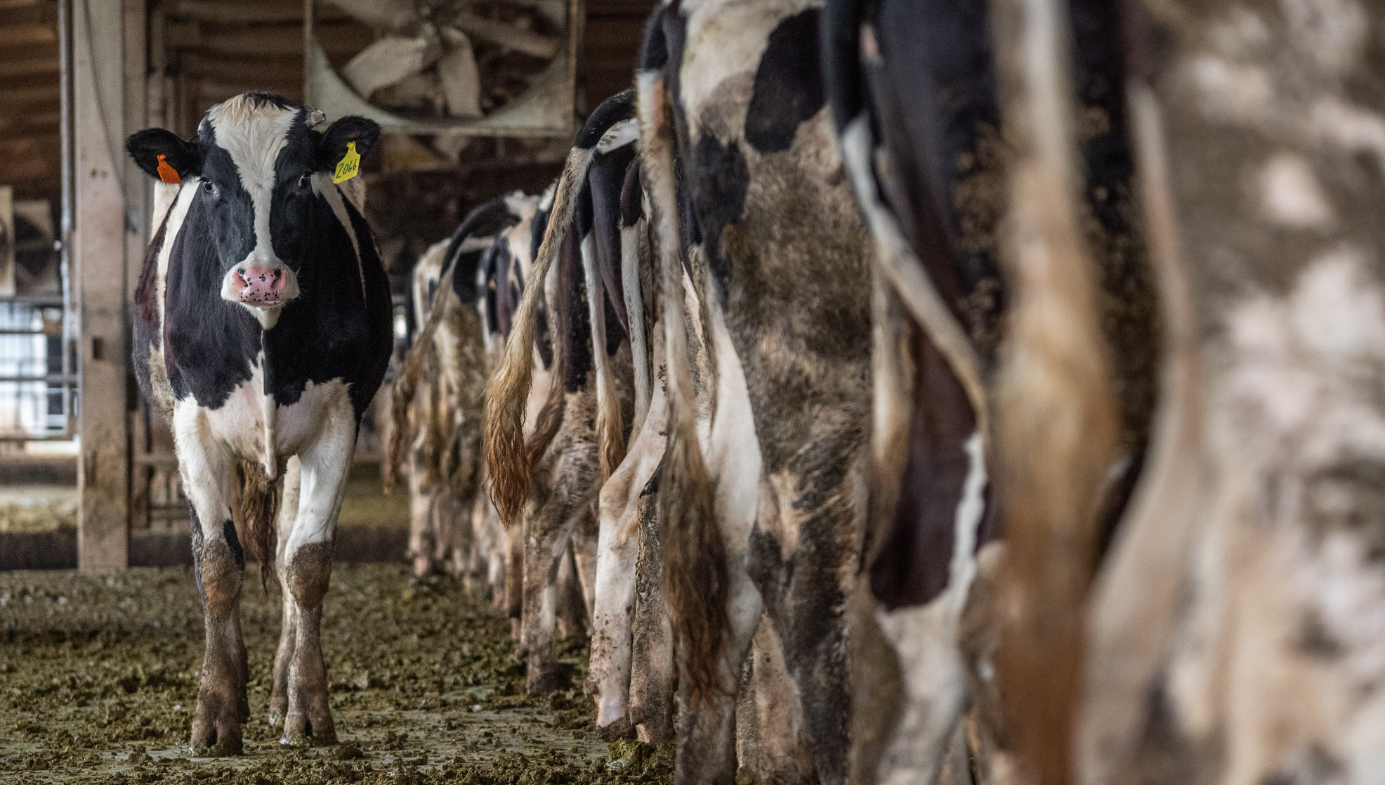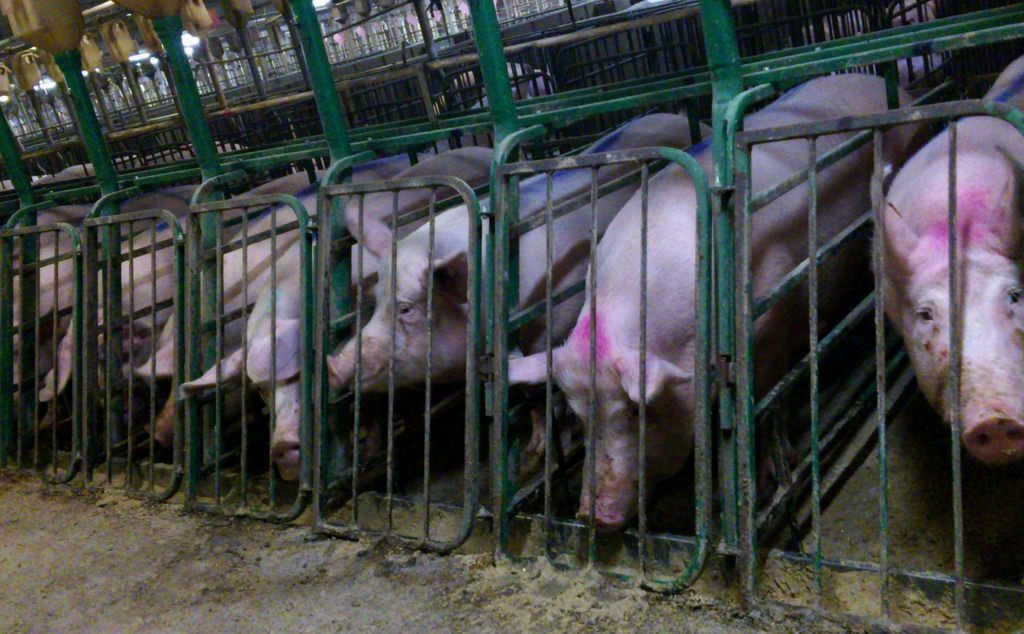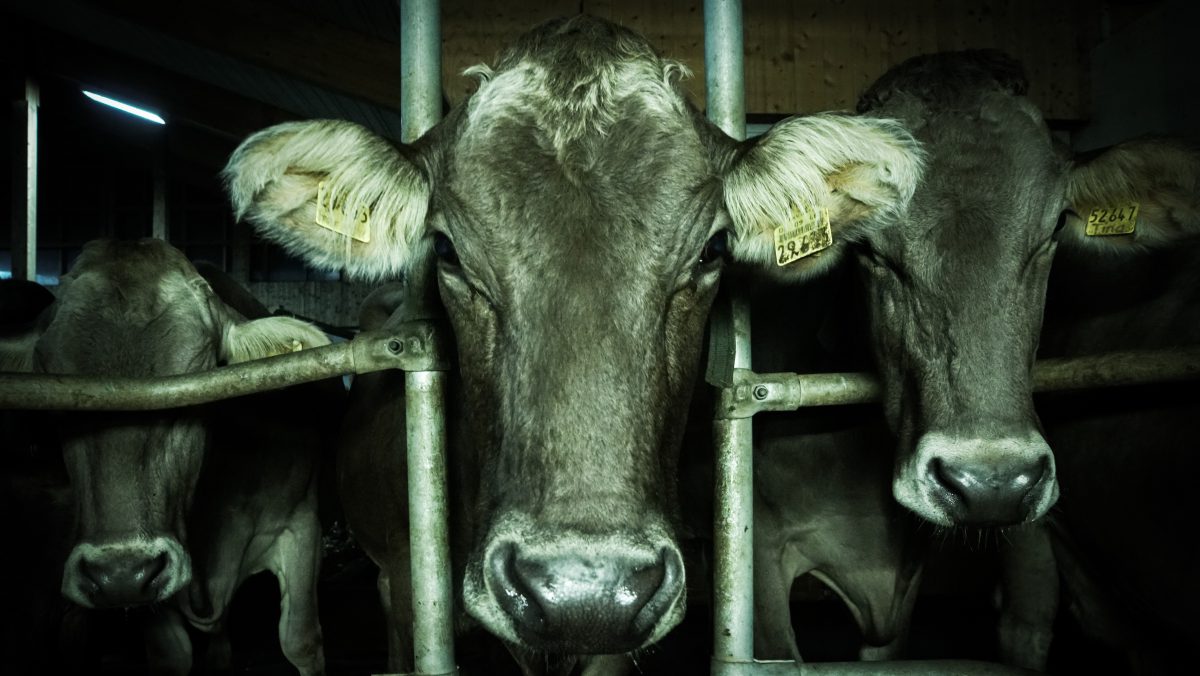Top Stories
Why It's Time to End Factory Farming
Think about the horses who were replaced by cars. Cars do the same thing horses do—they move people from one place to another—but without all the crap.

Ezra Klein and Sam Harris are usually intellectual adversaries. They butted heads earlier this year on the topic of the science of IQ, which was just one battle in the larger war waged by the “intellectual dark web” against mainstream leftism and identity politics.
Yet Klein and Harris are united on one seemingly radical view: Many years from now, our descendants will look back on the use of animals for food—particularly the intense animal suffering in factory farms—as a moral atrocity. In fact, a wide range of public figures have now echoed similar predictions, including science educator Bill Nye, business magnate Richard Branson, Indian politician Maneka Gandhi, author Steven Pinker, and the late conservative columnist Charles Krauthammer.
It might seem surprising that the plight of these neglected creatures—by numbers, around 93 percent of farmed animals are chickens and fish—is so compelling an issue given the fact that humans are still plagued by disease, oppression, war, inequality, and other pressing social issues. Many people would assert that human issues are categorically more important than animal issues, and that it is anathema to compare animal and human exploitation.
Yet consider these three facts: First, there are over 100 billion farmed animals alive at this moment—more than ten times the number of humans.
Second, over 90 percent (over 99 percent in the US) of these animals live on industrial, large-scale factory farms enduring atrocious cruelty such as intense confinement in tiny cages, brutal mutilation and slaughter methods, and rampant health issues from artificial breeding.
Third, today we have scientific consensus that these are sentient beings; they can feel happiness and suffering. Incredibly, around 87 percent of US adults agree with the statement, “Farmed animals have roughly the same ability to feel pain and discomfort as humans.”


If we put these facts together, then we see animal farming as more than an abstract system of machinery and livestock. Animal farming is the moral catastrophe of one sentient being with a heartbreaking life story, plus another sentient being… plus another… plus another… plus another… more than one hundred billion times. Historian Yuval Noah Harari, author of the books Sapiens and Homo Deus, even suggested that animal farming is “one of the worst crimes in history.”
Fortunately, I believe that even if humanity can’t muster the moral strength to tackle this issue, there’s an ace in the hole for the end of animal farming: sheer inefficiency. Farmed animals consume calories and nutrients from plants, and they use that energy to do a lot more than produce meat, dairy, and eggs. They have all the normal bodily functions like breathing, movement, and growing by-products like hoofs, organs, and hair. These processes mean that farmed animals have a caloric conversion ratio of 10:1 or more. For every ten calories of food we feed them, we get at most around one calorie of meat in return. And for every ten grams of plant-based protein, we get at most two grams of animal-based protein.
This inefficiency is an inevitable consequence of using sentient beings as a food source, and it’s the main reason for the environmental devastation. Animal farming is full of waste, both in terms of literal pollution like the tons of chicken manure filling the Chesapeake Bay, and in terms of wasted land, water, energy, and money.
Culinary professionals and food scientists are increasingly cutting this waste by taking the constituents of animal products (fats, proteins, nutrients, water) directly from plants and assembling them into “plant-based meat.” They are also making “cell-based meat” (also known as “clean meat”), which is real animal meat made by growing cells outside of an animal’s body. This meat is molecularly identical to conventional meat, without the ethical and food safety costs.
So a big reason for optimism about the end of animal farming is that it doesn’t have to be the end of meat.
This is really just another step in a long road of using technology to replace the use of animals. Think about the horses who were replaced by cars. Cars do the same thing horses do—they move people from one place to another—but without all the crap. In 1898, urban planners met in New York City to tackle the growing problem of streets filling up with over four million pounds of horse manure every day. They struggled to find a solution, but within a few decades, cars solved the problem for them due to pure efficiency.
The brilliant upside is that even if animal farming primarily ends for efficiency reasons, it will likely result in a great expansion of humanity’s moral circle. Once we’re no longer eating animals three times a day, we’ll no longer be burdened with the cognitive dissonance that comes from caring about animals while participating in their suffering.
We love animals. We really do. Think of the connections children can immediately form with animals—before they understand that animal bodies are on their dinner plates, and well before they’ve heard of the horrors of factory farming. Once animal farming has been greatly reduced, the human-animal connection will see a renaissance, a rediscovery of its full and compelling nature.

This will taint the legacies of modern humans who participate in animal farming. Just as we modern humans condemn our ancestors for atrocities we feel we’ve transcended today—such as slavery, genocide, and the worst forms of human oppression—there won’t be anything holding back 22nd century humans from condemning the humans of 2018. From their point of view, it will seem barbaric and evil that anyone once confined animals in tiny cages, cut their beaks and tails off without anesthetic, and forced them to live in filth and disease.
Those future generations won’t look kindly on our psychological refuge of so-called “humane” animal farms. Today we look back at slavery and see even the least cruel slaveholders as fundamentally evil for holding any human in bondage. We don’t make a distinction between factory slavery and humane slavery or cruel genocide and painless genocide. We, rightly so, condemn the entire institution.
Fortunately, many people in 2018 see the writing on the wall. In fact, around 47 percent of US adults support a ban on slaughterhouses. Everyone wants to stand on the right side of history. Take it from Tom Hayes, CEO of Tyson Foods, the world’s second-largest meat processor. He said, “Plant protein is growing faster than animal protein. For us, we want to be where the consumer is.” Or as business magnate Richard Branson said, “I believe that in 30 years or so we will no longer need to kill any animals and that all meat will either be clean or plant-based, taste the same and also be much healthier for everyone.”






